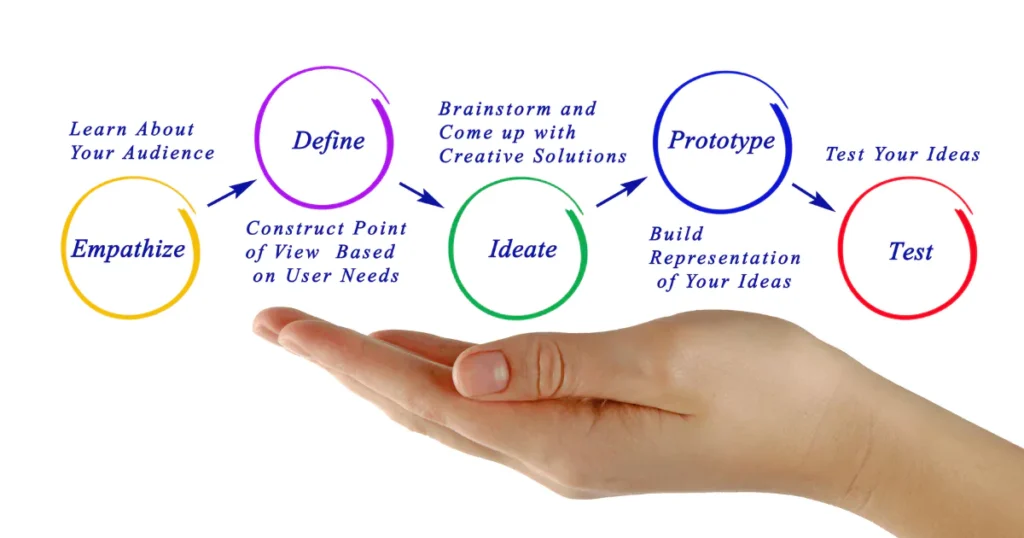The power of positive thinking for mental health can have a profound impact on a person’s well-being. When individuals focus on the good in their lives and maintain a positive outlook, they are better equipped to handle stress, anxiety, and other mental health challenges. Positive thinking also helps reduce negative thoughts, which often contribute to feelings of depression or low self-esteem.
By fostering optimism, people can build resilience, improve their mood, and develop healthier coping strategies. Positive thinking for mental health also encourages self-care, gratitude, and a more fulfilling life, making it an essential tool for mental and emotional balance. Simple practices like affirmations, mindfulness, and focusing on strengths can greatly enhance one’s overall mental health.

The Power of Positive Thinking for Mental Health
The power of positive thinking can be a game-changer for mental health. It’s more than just “thinking happy thoughts”—positive thinking reshapes how we perceive challenges, handle stress, and view ourselves.
Positive Thinking
Positive thinking is about changing your focus from the negative to the positive aspects of life. This doesn’t mean ignoring life’s problems but rather approaching them with a mindset that believes in solutions. It’s like standing at the foot of a mountain. One person might look up and think, “This is impossible,” while another might think, “This will be a challenge, but I’ll make it to the top.” The mountain is the same, but the difference in perspective is powerful.
Shifting your mindset like this can help reduce feelings of anxiety and depression. When you face difficulties with a positive outlook, it becomes easier to cope, and the overwhelming feelings associated with stress and fear lessen.
The Science Behind Positive Thinking
The power of positive thinking for mental health is truly remarkable. When you focus on positive thoughts, your brain releases chemicals like serotonin and dopamine, which help lift your mood and improve your overall well-being. By practicing positive thinking, you’re essentially training your mind to see the brighter side of situations, allowing you to manage stress and anxiety better.
It’s like tending to a garden, where negative thoughts act as weeds, trying to overtake the space. However, with the power of positive thinking for mental health, you provide the necessary sunlight and water for your emotional well-being to grow stronger. The more you practice positivity, the more resilient and peaceful your mind becomes. Over time, you’ll notice that the power of positive thinking for mental health leads to better emotional balance and a stronger, healthier mindset.
“Positive thinking will let you do everything better than negative thinking will.”
Reducing Stress with Positivity
tress is a natural part of life, but how we deal with it can either make or break our mental health. People who practice positive thinking are often better at managing stress. Instead of dwelling on what went wrong, they focus on how to move forward. For example, if a person misses a deadline at work, rather than beating themselves up, a positive thinker might say, “I missed this one, but I’ll plan better next time.” This attitude helps lower stress levels and keeps you from falling into a negative spiral of self-blame.
Stress can be compared to a heavy load on your back. Negative thinking makes that load feel heavier, while positive thinking allows you to find ways to carry it more easily or even lessen the weight altogether.
Positive Thinking and Resilience
The power of positive thinking for mental health plays a crucial role in building resilience during tough times. When life gets challenging, whether through personal loss, financial issues, or health problems, a positive mindset can help us bounce back stronger. Instead of staying defeated, people who embrace the power of positive thinking for mental health see setbacks as temporary and find the motivation to keep going.

This doesn’t mean ignoring the pain or pretending everything is fine. It’s about recognizing the struggles while keeping hope alive for a better future. Positive thinking helps us recover more quickly and stay emotionally strong. By practicing the power of positive thinking for mental health, we can face difficulties with greater strength and optimism, knowing brighter days are ahead.
| Benefit | How It Helps |
|---|---|
| Reduces Stress | Focuses on solutions, easing anxiety. |
| Boosts Self-Esteem | Replaces negative self-talk with affirmations. |
| Builds Resilience | Helps bounce back from setbacks faster. |
| Improves Relationships | Enhances communication and support. |
| Increases Happiness | Encourages a more positive, content mindset. |
Improving Relationships Through Positivity
Positive thinking benefits your internal world and influences how you relate to others. When your mindset is focused on optimism and hope, it tends to affect the people around you. Relationships thrive on good communication, understanding, and support—all of which are easier to maintain with a positive attitude.
For example, if a friend comes to you with a problem, a positive thinker might respond with encouragement and solutions rather than focusing on the negative aspects. This attitude can strengthen bonds and create a healthier social circle. It’s like being a light in someone else’s darkness, guiding them to a brighter place instead of getting lost in the dark with them.
Positive Thinking and Self-Esteem
The power of positive thinking for mental health plays a crucial role in boosting self-esteem. When you engage in negative self-talk, like telling yourself you aren’t good enough or capable, it can harm your mental well-being. The power of positive thinking for mental health allows you to replace those harmful thoughts with affirmations that highlight your strengths and potential. Instead of thinking, “I failed, so I must be a failure,” you can say, “I failed, but I learned something, and I’ll do better next time.”

Over time, positive thinking for mental health can help rewire your brain, enabling you to view yourself with more compassion. This shift in mindset makes you believe in your ability to achieve your goals and face challenges. As your self-esteem grows, you may recover from setbacks more quickly and with stronger emotions. Ultimately, embracing the power of positive thinking for mental health leads to greater success and happiness in life.
How to Start Thinking Positively
If you’re not naturally inclined to think positively, don’t worry—it’s a skill you can develop over time. Like learning to play a musical instrument, it takes practice, but it’s completely achievable. Here are some ways to start incorporating positive thinking into your daily life:
Focus on Solutions, Not Problems
Instead of dwelling on what’s wrong, focus on how to make things better. This doesn’t mean ignoring issues but approaching them with a solution-oriented mindset. Every problem has a solution, and positive thinking helps you find it faster.
Start Your Day with Gratitude
Before leaving bed, consider one or two things you’re grateful for. It could be something as simple as having a roof over your head or the opportunity to enjoy a new day. Gratitude helps set the tone for a positive day.

Challenge Negative Thoughts
When a negative thought arises, ask yourself if it’s true. Often, our minds exaggerate problems, making them seem worse than they are. Replace the negative thought with a more balanced or positive one.
Surround Yourself with Positivity
The people you spend time with can influence your mindset. Try to be around positive, uplifting people who encourage you to see the bright side of life. It’s like being in a garden full of healthy plants—the more positive energy around you, the more you’ll absorb.
Use Positive Affirmations
Positive affirmations are short, powerful statements that help rewire your brain for optimism. Phrases like “I am capable,” “I can handle this,” or “I am worthy” can shift your mindset and improve how you see yourself.
Practical Steps to Cultivate Positive Thinking
Incorporating positive thinking into your daily life can feel like planting seeds in a garden.
Start with Gratitude
Begin each day by taking a moment to reflect on what you’re grateful for. This simple practice is like watering those seeds, helping them grow and flourish in your mind.
Keep a Journal
Another helpful technique is keeping a journal where you write down three good things that happen each day, no matter how small. It’s like collecting little treasures that remind you of life’s goodness and positivity.
Surround Yourself with Positivity
Surrounding yourself with positive influences—whether it’s uplifting books, cheerful music, or friends who make you laugh—acts like sunshine for your garden. This support helps your positive thoughts thrive.
Engage in Joyful Activities
Lastly, engage in activities that bring you joy, such as pursuing hobbies or exercising. These activities nourish your mind and spirit, making it easier to maintain a positive outlook.
Remember the Journey
Like nurturing a garden takes time, developing a positive mindset is a gradual journey. Each small step you take contributes to a healthier, happier you.
Conclusion
The Power of Positive Thinking for Mental Health can truly change your life. It’s not just about smiling and pretending everything is okay; it’s about making a real mental shift. When you embrace the power of positive thinking for mental health, you start to see the world differently. You become better at handling stress and building strong relationships.
This positive mindset helps you bounce back from challenges, making you more resilient. Moreover, it boosts your self-esteem, allowing you to believe in yourself more. The beauty of the power of positive thinking for mental health is that its effects ripple outwards, influencing every aspect of your life. Although it might take time, practicing positive thinking can significantly improve your well-being. So why not give it a try? Start today, and you may be amazed at how this simple change can brighten your life and enhance your mental health.

